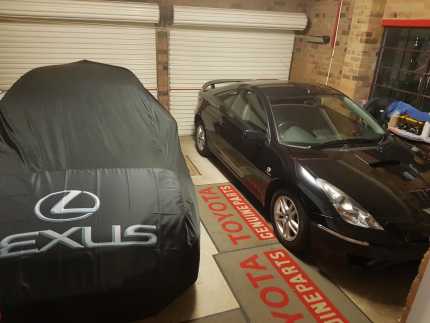Negotiation is a critical aspect of the car selling process. As a private seller, effective negotiation can significantly impact the outcome of the sale and help you get the best price. Effective negotiation can lead to successful car sales and ensure both parties get a good deal.
In private car selling negotiations, key strategies include setting a competitive initial asking price, understanding market values, practising active listening, and emphasising the vehicle’s unique value. Be open to reasonable offers, address concerns transparently, and be patient to achieve the best deal.
We’ve put together some tips for how to negotiate selling a car to help you navigate selling a used vehicle. Before you’re ready to sell your car, make sure you’ve got some of these car selling negotiation strategies up your sleeve.
1. Establishing a Fair Asking Price
The first crucial step in determining how to sell a car is establishing a fair asking price. Pricing your car correctly can attract potential buyers, facilitate a quicker private sale, and ensure you receive a good price for your vehicle. Here are some steps to help you determine a fair asking price:
- Fair Market Value: Start by researching the current used car market for the specific make, model, and year of your vehicle. Look for similar cars for sale in your local area or through online marketplaces.
- Market Trends: Be aware of market trends in your area. If your car is a popular model in high demand, this can be reflected in the asking price of the car.
- Consider Vehicle Specifics: Take into account your car’s unique features and condition. Factors such as the odometer reading, trim level, and overall condition can significantly affect the value of your vehicle.
- Use Pricing Tools: Utilise online car valuation tools to help find an estimated value range for your car, such as Gumtree’s free, instant car valuation tool. These tools can provide estimated values based on your car’s make, model, year, and other details.
- Account for Depreciation: Recognise that cars typically depreciate over time. Take the age of your vehicle into account and understand that an old car will typically have a lower market value than a new car.
- Check Recent Sales: Look at recent car sales data to see what similar vehicles have sold for in your area. This can give you a real-world understanding of the current market value.
- A Competitive Car Price: Determine a competitive asking price that positions your car as an attractive option for potential buyers. It should be in line with prevailing market prices for similar vehicles.
- Factor in Upgrades and Repairs: If you’ve made any significant upgrades or repairs to the vehicle, consider how these improvements might affect the asking price. Highlight these in your listing.
- Additional Features: Some additional features can increase the value of your car, which can bump up the asking price.
- Be Objective: Be objective about the condition of your car. While you might have an emotional attachment to it, people interested in buying a car will assess the vehicle based on its features, condition, and price.
- Be Transparent: Be honest and transparent about your vehicle’s condition, history, and any issues potential buyers need to know. Misrepresenting your car can lead to distrust and lost opportunities.
2. Determining Your Lowest Acceptable Price
Before you start negotiating, determine the lowest price you can realistically afford to accept and are willing to take.
- Timeline: Consider the urgency to sell, including upcoming expenses, debts, your car loan or financial goals. You may want to sell the car sooner rather than later to save money and avoid paying registration or other fees for upkeep.
- Time Constraints: Meeting with potential buyers, organising test drives and negotiating a price can be time-consuming. If you have any time constraints, consider a lower price to support a faster sale.
- Negotiating Room: Factor in potential negotiation room as most buyers will negotiate down. It’s a good idea to set your asking price for your used car slightly higher than you’d be willing to accept.
- Balance: Strike a balance between a fair car price and attracting potential buyers. An unrealistically high price can deter buyers, or one that’s too low can result in financial losses. A very low price can also suggest to buyers that there are issues with the car.
- Advertising Fees: Take into consideration the total cost to list and market the car for sale, or to get the car ready for sale.
3. Car Negotiation Tips for Navigating Buyer Counter Offers Effectively
There are some common counterarguments you may come across as a private seller trying to sell a used car. Common reasons buyers might give for asking for a lower price include:
- Market Comparison: Buyers might mention that they’ve found other cars that are similar but listed at lower prices elsewhere, either online or at a car dealer.
- Vehicle Inspection Findings: After inspecting the car, buyers may identify issues or necessary repairs, that they believe justifies a lower offer.
- Budget Constraints: Buyers may express that the listed price is beyond their budget, making it difficult for them to afford the price of the car as it stands, and may need to walk away if there’s no room for negotiation.
- Mileage and Condition: Buyers might argue that the car’s mileage or overall condition is not in line with the asking price, requesting a discount as a result.
- History Report: Buyers may be hesitant to buy a car with an unfavourable history, such as accidents or repair issues, and may use this as a basis for a lower offer.
- Market Trends: Buyers may reference current market trends and pricing data for used cars to support their request for a reduced price, especially if the market is experiencing a downturn.
Practise Active Listening
How you respond to concerns about the asking price can make a big difference in negotiations. Sellers need to listen to the reasons cited by the buyer and carefully evaluate their validity. Effective negotiation involves understanding the buyer’s perspective while also protecting your own interests as a private seller.
- Respectful: Always remain calm and respectful during negotiations, even if you don’t agree with the buyer. If the buyer feels disrespected, they’re more likely to walk away from a potential deal.
- Give Your Full Attention: Focus on the buyer and the conversation. Minimise distractions, such as your phone or other activities, to show that you value their time and input.
- Actively Listen: Listening to the potential buyer’s concerns can allow you to get a better understanding of their needs. There may be information you need to know in order to strike a better deal.
- Maintain Eye Contact: Maintain consistent eye contact with the buyer. This non-verbal cue conveys attentiveness and engagement in the conversation.
- Avoid Interrupting: Allow the buyer to express their thoughts and concerns without interrupting. Interrupting can be perceived as rude and may hinder productive communication towards a better deal.
- Understand: Genuinely try to understand the buyer’s perspective and concerns. This can give an insight into their car buying habits and holdups.
- Paraphrase and Summarise: Periodically repeat or summarise what the buyer has said to confirm your understanding. This lets them know you’re actively processing their information and taking their concerns seriously.
- Reflect on Your Responses: Before responding, take a moment to consider your reply. This ensures that your response is well-informed and directly addresses the buyer’s concerns.
- The “Silence” Technique: This is a strategic use of silence as a communication tool often used by car salespeople to secure a good deal. Deliberately leave a pause in conversation after making a counteroffer to allow the buyer to consider.
How to Negotiate Car Price: Highlight Value Points
Stay focused on the car’s strong points and reiterate why you believe the car is worth a higher price than the buyer is currently offering.
- Mention Value Points: Reiterate the great parts of the car, be it low mileage, recent upgrades, or a full service history.
- Price Justification: Refer to market comparisons or a valuation calculator tool to justify how you’ve come up with the asking price. Having strong price justification on your side gives you negotiating power to show the buyer. This will also let them know you’ve done your research.
- Needs of the Buyer: Make sure you understand the specific needs and priorities of the prospective buyer and tailor your response to show how the car you’re selling will benefit them and their priorities if they choose to make it their new car. Without being pushy, you’re trying to convey to the buyer: “This is the car you want!”
- Benefits Over Features: Instead of just listing features of the car, explain how those features benefit the buyer. For example, if the car has advanced safety features, highlight how they provide peace of mind and security. Remember, they’re already interested in buying a car—it’s your job to show them why it should be your car they buy.
- Test Drives: Encourage interested buyers to take the car for a test drive and let the car speak for itself.
- Vehicle History Report: Consider running a vehicle history report as further reassurance of the condition and history of the car.
Preparation is Key
Preparation is key in private car sale negotiations. Understanding your position and the buyer’s needs and expectations helps you set a realistic asking price, build trust, and navigate the negotiation process effectively. It increases the likelihood of a successful, fair, and mutually satisfying private sale where everyone is happy with the purchase price.
While ensuring you get the best deal is vital for private sellers, ensuring a smooth and respectful negotiation benefits both parties.































